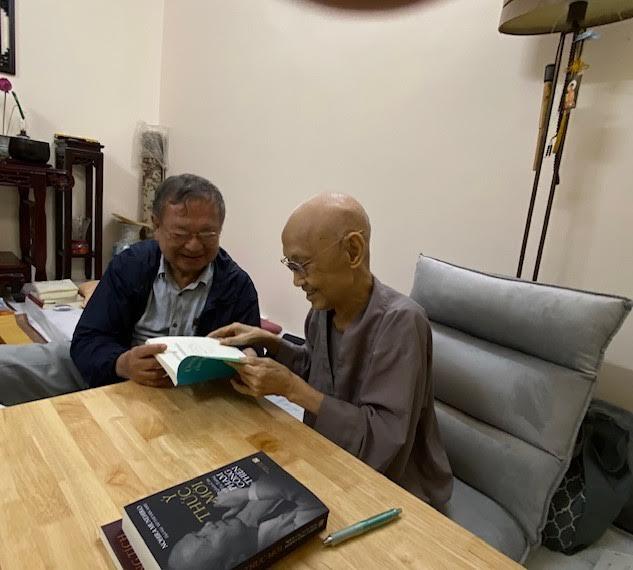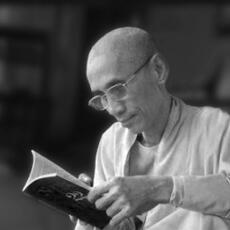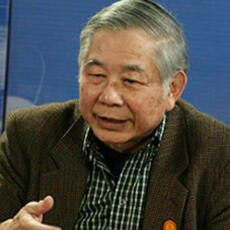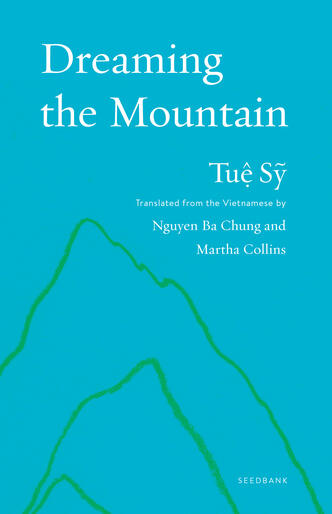Honoring Tuệ Sỹ
Milkweed is deeply saddened by the recent passing of Vietnamese Buddhist monk Tuệ Sỹ, whose poems we published in a bilingual edition last year as Dreaming the Mountain, with translations by Nguyen Ba Chung and Martha Collins. Born in 1943, Tuệ Sỹ joined a Zen order at the age of ten and later became an eminent Buddhist scholar, professor, translator, and poet. He actively resisted the idea that Buddhism should serve as a tool for any political agenda, and was well known for his dissidence.
Following study at the Institute of Buddhism in Nha Trang, Tuệ Sỹ moved to Saigon, where he became a professor at Van Hanh University and began publishing poems and stories. In 1975, sensing that his freedom as a monk was threatened, he returned to a solitary hill in Nha Trang, where he wrote many of the poems in Dreaming the Mountain. Because he continued to defend the right of the Vietnam Unified Buddhist Church to exist, he was sent to reeducation camps for two years and to prison for fourteen years. He was released in 1998 in response to international pressure. After he died at the age of eighty-one, an obituary in The Vietnamese noted: “His passing is a significant loss to the Buddhist community and to all those who stand for religious freedom and human rights.”
“Tuệ Sỹ may have left us, but his life and his work will remain a model for all of us for years to come.” —Nguyen Ba Chung
Collins and Chung worked on Tuệ Sỹ’s poems for over ten years before submitting them to Milkweed for consideration as a part of our Seedbank series of world literature. The latter met Tuệ Sỹ several times in addition to corresponding with him during the translation process, and wrote of the late author: “Tuệ Sỹ was recognized as one of the most important Buddhist scholars in Vietnam. He published over fifty works, including translations of the Buddhist sutras and works on philosophy and literature […] His poetry was received with great acclaim by Vietnamese intellectuals and writers, both inside the country and abroad.”
When the book was published, Rachel Abrams wrote in a review in Tricycle: “Dreaming the Mountain is a moving depiction of a mind seeking freedom in a chaotic world: the doubts and certainties, the careful, profound observations, and, ultimately, the dedication to liberation. It belongs with the greats of wartime poetry and Buddhist literature, but it’s also a generous companion for any of us seeking to understand this human life.”
In a recent essay, Chung further praised Tuệ Sỹ not only for his scholarship and poetry, but also for being someone “who stood his ground against powerful forces arrayed against him, who maintained composure and fidelity to his ideals, and who advocated for a path that he believed would bring about genuine peace and happiness for his people. He was, as demonstrated by his actions, a Bodhisattva of our time.” He later concluded: “Tuệ Sỹ may have left us, but his life and his work will remain a model for all of us for years to come.”





